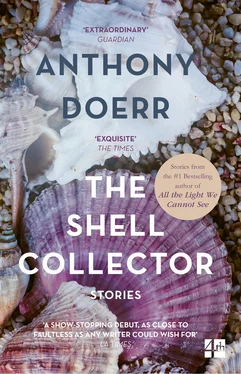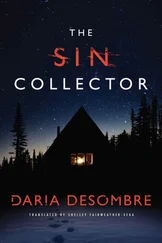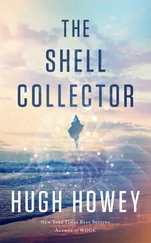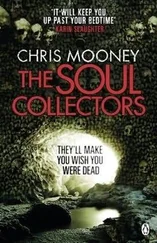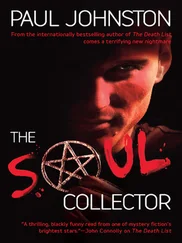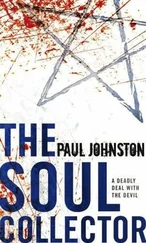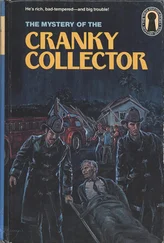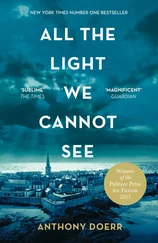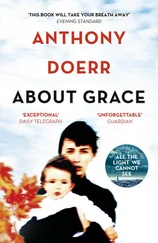He took his collecting bucket and clipped Tumaini into her harness, and she led them down the path to the reef. The air smelled like lightning. The Jims huffed to keep up. They told him they were impressed he moved so quickly.
“Why?”
“Well,” they murmured, “you’re blind. This path ain’t easy. All these thorns.”
Far off, he heard the high, amplified voice of the muezzin in Lamu calling prayer. “It’s Ramadan,” he told the Jims. “The people don’t eat when the sun is above the horizon. They drink only chai until sundown. They will be eating now. Tonight we can go out if you like. They grill meat in the streets.”
By noon they had waded a kilometer out, onto the great curved spine of the reef, the lagoon slopping quietly behind them, a low sea breaking in front. The tide was coming up. Unharnessed now, Tumaini stood panting, half out of the water on a mushroom-shaped dais of rock. The shell collector was stooped, his fingers middling, quivering, whisking for shells in a sandy trench. He snatched up a broken spindle shell, ran a fingernail over its incised spirals. “ Fusinus colus ,” he said.
Automatically, as the next wave came, the shell collector raised his collecting bucket so it would not be swamped. As soon as the wave passed he plunged his arms back into sand, his fingers probing an alcove between anemones, pausing to identify a clump of brain coral, running after a snail as it burrowed away.
One of the Jims had a snorkeling mask and was using it to look underwater. “Lookit these blue fish,” he gasped. “Lookit that blue. ”
The shell collector was thinking, just then, of the indifference of nematocysts. Even after death the tiny cells will discharge their poison—a single dried tentacle on the shore, severed eight days, stung a village boy last year and swelled his legs. A weeverfish bite bloated a man’s entire right side, blacked his eyes, turned him dark purple. A stone fish sting corroded the skin off the sole of the shell collector’s own heel, years ago, left the skin smooth and printless. How many urchin spikes, broken but still spurting venom, had he squeezed from Tumaini’s paw? What would happen to these Jims if a banded sea snake came slipping up between their fat legs? If a lion fish was dropped down their collars?
“Here is what you came to see,” he announced, and pulled the snail—a cone—from its collapsing tunnel. He spun it and balanced its flat end on two fingers. Even now its poisoned proboscis was nosing forward, searching him out. The Jims waded noisily over.
“This is a geography cone,” he said. “It eats fish.”
“ That eats fish?” one of the Jims asked. “But my pinkie’s bigger.”
“This animal,” said the shell collector, dropping it into his bucket, “has twelve kinds of venom in its teeth. It could paralyze you and drown you right here.”
This all started when a malarial Seattle-born Buddhist named Nancy was stung by a cone shell in the shell collector’s kitchen. It crawled in from the ocean, slogging a hundred meters under coconut palms, through acacia scrub, bit her and made for the door.
Or maybe it started before Nancy, maybe it grew outward from the shell collector himself, the way a shell grows, spiraling upward from the inside, whorling around its inhabitant, all the while being worn down by the weathers of the sea.
The Jims were right: the shell collector did hunt caribou. Nine years old in Whitehorse, Canada, and his father would send the boy leaning out the bubble canopy of his helicopter in cutting sleet to cull sick caribou with a scoped carbine. But then there was choroideremia and degeneration of the retina; in a year his eyesight was tunneled, spattered with rainbow-colored halos. By twelve, when his father took him four thousand miles south, to Florida to see a specialist, his vision had dwindled into darkness.
The ophthalmologist knew the boy was blind as soon as he walked through the door, one hand clinging to his father’s belt, the other arm held straight, palm out, to stiff-arm obstacles. Rather than examine him—what was left to examine?—the doctor ushered him into his office, pulled off the boy’s shoes and walked him out the back door down a sandy lane onto a spit of beach. The boy had never seen sea and he struggled to absorb it: the blurs that were waves, the smears that were weeds strung over the tideline, the smudged yolk of sun. The doctor showed him a kelp bulb, let him break it in his hands and scrape its interior with his thumb. There were many such discoveries: a small horseshoe crab mounting a larger one in the wavebreak, a fistful of mussels clinging to the damp underside of rock. But it was wading ankle deep, when his toes came upon a small round shell, no longer than a segment of his thumb, that the boy truly was changed. His fingers dug the shell up, he felt the sleek egg of its body, the toothy gap of its aperture. It was the most elegant thing he’d ever held. “That’s a mouse cowry,” the doctor said. “A lovely find. It has brown spots, and darker stripes at its base, like tiger stripes. You can’t see it, can you?”
But he could. He’d never seen anything so clearly in his life. His fingers caressed the shell, flipped and rotated it. He had never felt anything so smooth—had never imagined something could possess such deep polish. He asked, nearly whispering: “Who made this?” The shell was still in his hand, a week later, when his father pried it out, complaining of the stink.
Overnight his world became shells, conchology, the phylum Mollusca. In Whitehorse, during the sunless winter, he learned Braille, mail-ordered shell books, turned up logs after thaws to root for wood snails. At sixteen, burning for the reefs he had discovered in books like The Wonders of Great Barrier , he left Whitehorse for good and crewed sailboats through the tropics: Sanibel Island, St. Lucia, the Batan Islands, Colombo, Bora Bora, Cairns, Mombassa, Moorea. All this blind. His skin went brown, his hair white. His fingers, his senses, his mind—all of him—obsessed over the geometry of exoskeletons, the sculpture of calcium, the evolutionary rationale for ramps, spines, beads, whorls, folds. He learned to identify a shell by flipping it up in his hand; the shell spun, his fingers assessed its form, classified it: Ancilla, Ficus, Terebra. He returned to Florida, earned a bachelor’s in biology, a Ph.D. in malacology. He circled the equator; got terribly lost in the streets of Fiji; got robbed in Guam and again in the Seychelles; discovered new species of bivalves, a new family of tusk shells, a new Nassarius , a new Fragum.
Four books, three Seeing Eye shepherds, and a son named Josh later, he retired early from his professorship and moved to a thatch-roofed kibanda just north of Lamu, Kenya, one hundred kilometers south of the equator in a small marine park in the remotest elbow of the Lamu Archipelago. He was fifty-eight years old. He had realized, finally, that he would only understand so much, that malacology only led him downward, to more questions. He had never comprehended the endless variations of design: Why this lattice ornament? Why these fluted scales, these lumpy nodes? Ignorance was, in the end, and in so many ways, a privilege: to find a shell, to feel it, to understand only on some unspeakable level why it bothered to be so lovely. What joy he found in that, what utter mystery.
Every six hours the tides plowed shelves of beauty onto the beaches of the world, and here he was, able to walk out into it, thrust his hands into it, spin a piece of it between his fingers. To gather up seashells—each one an amazement—to know their names, to drop them into a bucket: this was what filled his life, what overfilled it.
Читать дальше
